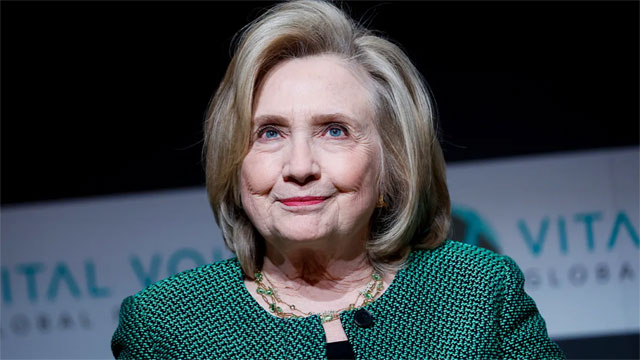Daijiworld Media Network - Washington
Washington, Aug 16: In a surprising turn of events, former U.S. Secretary of State Hillary Clinton said she would support nominating President Donald Trump for a Nobel Peace Prize — but only if he manages to end the Russia-Ukraine war without Ukraine losing any territory.
Speaking on the Raging Moderates podcast, Clinton stated, “If he could end this terrible war without forcing Ukraine to cede land to Russia — if he truly stands up to Putin — I’d nominate him.”
Her statement came just hours before Trump’s high-stakes meeting with Russian President Vladimir Putin at Joint Base Elmendorf-Richardson in Anchorage, Alaska — a Cold War-era military base. The summit marked a rare moment of bipartisan alignment on global stakes, even between bitter political rivals.

Clinton, who lost the 2016 presidential race to Trump, emphasized that while she remains critical of him, a breakthrough in Ukraine could be “an opportunity” for meaningful peace. “He is not meeting a friend. He is meeting an adversary,” she said of Putin.
Trump and Putin spoke for three hours on Friday and reported “progress,” although no ceasefire or formal deal was announced. Trump told Fox News afterward, “Ukraine has to agree. President Zelensky has to agree. Nothing’s done yet.”
Putin called the meeting “constructive” and said it had set the foundation for future talks. Trump echoed that, calling the summit “extremely productive,” while acknowledging that multiple issues still need to be resolved.
Notably, Ukrainian President Volodymyr Zelensky was not invited to the Alaska summit. He has consistently rejected any deal that involves territorial concessions to Russia.
Despite the absence of concrete results, the summit was described by observers as a potential turning point in the three-year-long war. Trump reiterated his promise to end the conflict “quickly,” while critics continue to question the specifics of his plan.
Clinton’s unexpected endorsement — conditional as it is — marks a dramatic moment in U.S. political discourse, highlighting just how high the stakes are in resolving the war in Eastern Europe.